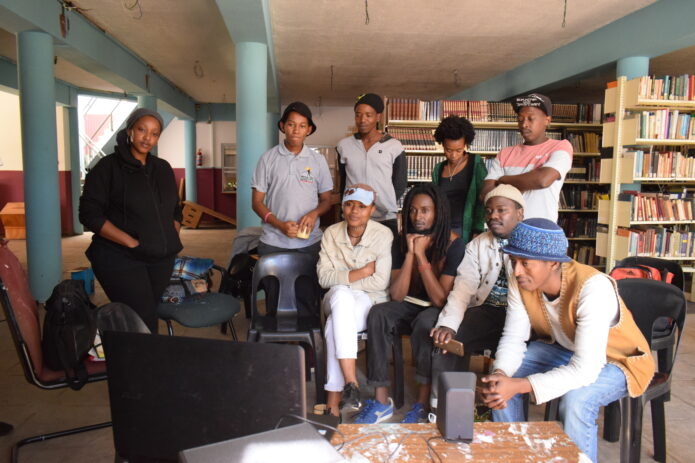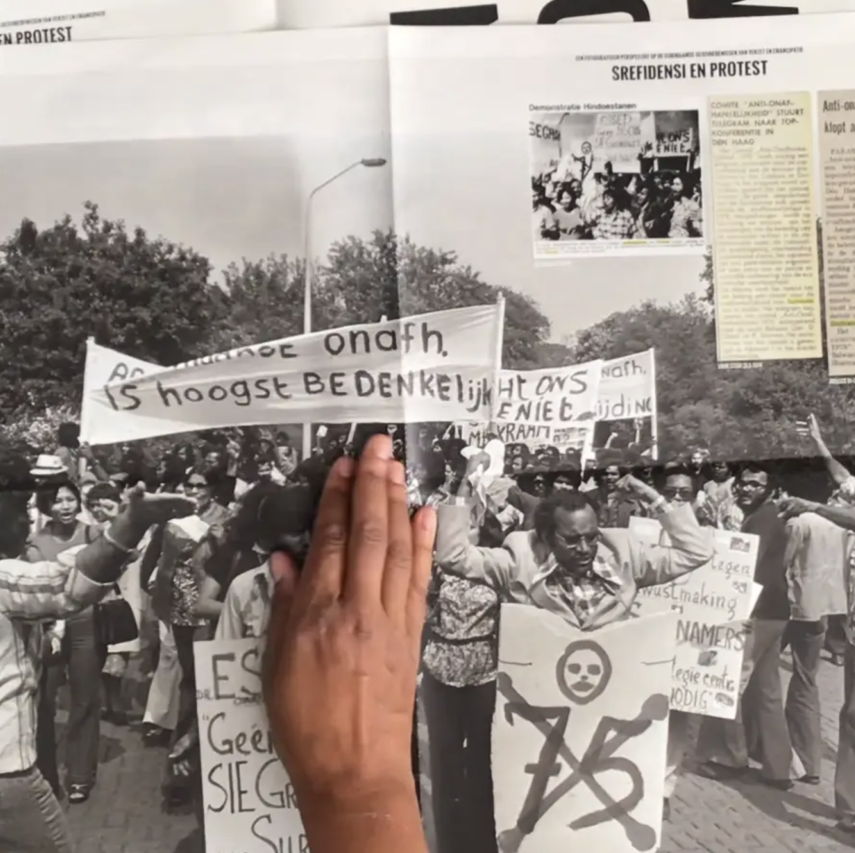 Srefidensi en Protest, foto van Sara Blokland (2021)
Srefidensi en Protest, foto van Sara Blokland (2021) 9 Nov 2021
18:30 - 20:30
Decolonial Futures: Workshop with Sara Blokland
Decolonial Futures is an educational programme organised between the Sandberg Instituut, the Gerrit Rietveld Academie and Framer Framed in Amsterdam as well as Funda Community College in Soweto, South Africa. The first term of Decolonial Futures 2021-2022 consists of three hybrid sessions at Framer Framed in Nov- Dec. Participants will work towards the making of a documentary whose format and content will be informed by guest filmmakers, writers and artists such as Sara Blokland.
It is now required to bring valid a CoronaCheck proof. Please be ready to show your QR code on arrival, for more information check our Corona Regulations.
Program
9 November with Sara Blokland
23 November with Aditi Jaganathan
7 December with Ariella Aïsha Azoulay
from 18:30 – 20:30
To attend the first term of the programme please RSVP by filling in this form.
For any questions, please do contact us at: info@decolonialfutures.org
First workshop
For the first workshop of Decolonial Futures visual artist and independent researcher Sara Blokland will join us to speak about her art practice and the ways in which she reflects on the complicated role of photography in relation to the histories of individuals, the concept of ‘family’ and culture heritage.
She will introduce a number of works, including multimedia installation “Mother’s History”, in which she explores her mother’s Amsterdam-Jewish family history and the film “The Dollhouse”, which looks at a forgotten collection of life-size dolls owned by the Tropenmuseum, that was made in 1938 to embody the Dutch colonies at the 1939 World Exhibition in New York. She will also introduce her latest research/curatorial project “Srefidensi Foto”, a study into the photographic representation of resistance and emancipation of the Surinamese people before and around the independence of Surinam in 1975. Working with footage from different photographic archives and re-staging them in different ways, the project makes space for lesser known stories and histories around the struggle for independence.
The 2021-2022 programme is focused on documentary as a medium of both de/colonial practices of making, representing and looking. This year, Decolonial Futures will also be punctuated by the Winter School, a 10 days long programme in 2022 in which participants from South Africa and the Netherlands will have an opportunity to meet in Amsterdam and to collectively ponder on the materialisation of the colonial remnants and decolonial strategies in everyday life. The on-going work and discussions will be restituted to the public at the end of the programme.
Themes
The focuses of the first term explore:
- What are the ways in which the colonial affect you/your environment in day to day life?
- How could you capture that feeling/observation/relation?
- How does documentary, as a medium, participate in de/colonial practices of making, representing and looking? How can the medium become a tool for empowerment?
- What methodology can you think of/do you want to apply in the making of a documentary?
Classes will take place at Framer Framed in Amsterdam, where we will host a series of screenings, talks and workshops by individuals whose practices engage with narratives of de/coloniality, their histories and their current unfolding.
In parallel, participants at Funda Community College in Soweto will work on archival material accumulated over the years of DF since the inception of the programme and will reflect on their experience, the feasibility and limitations of decolonial educational endeavours and the cross cultural exchange that attempted to address it.
The two groups will offer their insights and their work in progress to one another, although the final outcome of both documentaries will be dependent on the quality of the exchange and inclination of all participants.
The first term will be semi-public and will serve to lay the foundations for the programme, and address the theoretical, the social and ethical consideration of filmmaking. It will provide participants with the opportunity to critically engage further in the programme.
The programme is free but the success of it depends on attendance and engagement. For health and safety reasons due to COVID regulations, as well as for the smooth running of the programme, places to be enrolled for the WS and the second term will be attributed on holistic observations from the programme tutors and depend on the level of commitment of participants expressed during the first term and through an open call for the WS.
How to Register
The programme is open to students of the Sandberg Institute and the Rietveld Academy, cultural practitioners, and anyone willing decolonise their perspective, research and practice. By registering you are confirming your engagement for all the classes.
To attend the first term of the programme please RSVP by filling in this form.
For any questions, please do contact us at: info@decolonialfutures.org
More about the programme
The programme was inspired by the desire to work collectively towards a decolonial future through an equal exchange of knowledges and perspectives from students working across the disciplines of art and design. The themes are centred around questions of decolonisation in the context of art and education.
Last year’s Decolonial Futures was divided into two terms, the first term establishing the local and global historical context of Soweto, South Africa, whilst the second term was part of sonsbeek20→24’s curatorial framework of ‘labour and the sonic’.
Read more about the first sessions here.
Read more about the second sessions here.
Organisational Team
The organisational team consist of Dorine van Meel and Ibrahim Cissé (Sandberg Instituut / Gerrit Rietveld Academie, Amsterdam), Simangaliso Sibiya and Phumzile Nombuso Twala (Funda Community College, Soweto), Evie Evans (Framer Framed).

Participants from Decolonial Futures in Soweto, South Africa
Shared Heritage / Action Research / Colonial history / Suriname / South Africa /
Agenda
Decolonial Futures: Workshop with Ariella Aïsha Azoulay
First term of the Decolonial Futures programme 2021-2022
Decolonial Futures: Workshop with Aditi Jaganathan
First term of the Decolonial Futures programme 2021-2022 with selected Artist Talks
Network
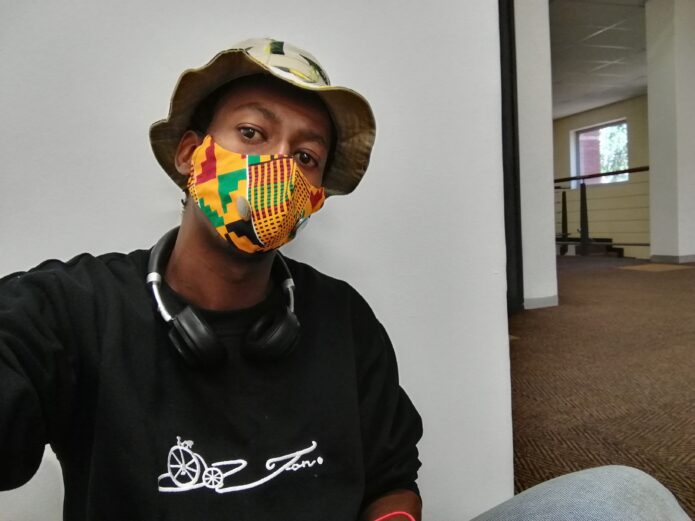
Simangaliso Sibiya
Artist, curator and educator
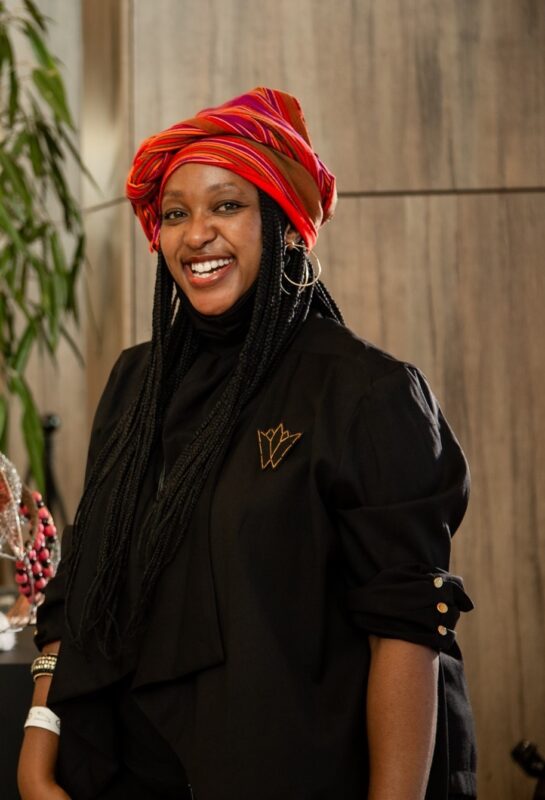
Phumzile Nombuso Twala
Writer, Educator
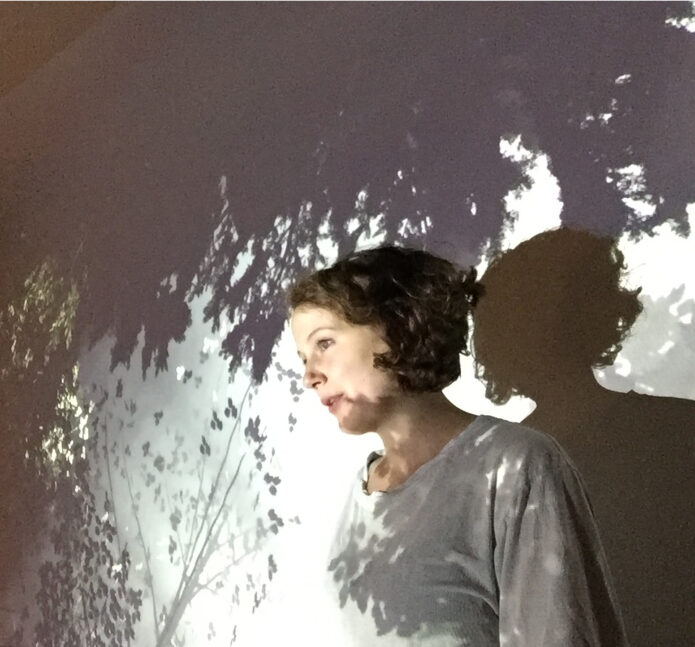
Dorine van Meel
Artist, Writer, Educator
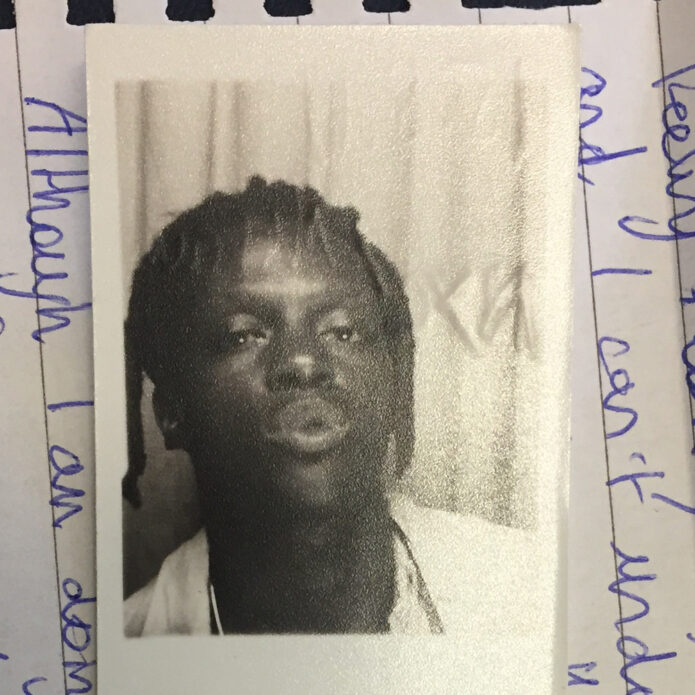
Ibrahim Cissé
Artist, Researcher and Educator
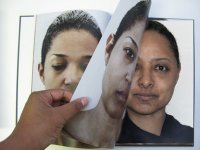
Sara Blokland
Artist, Curator and Researcher
Magazine
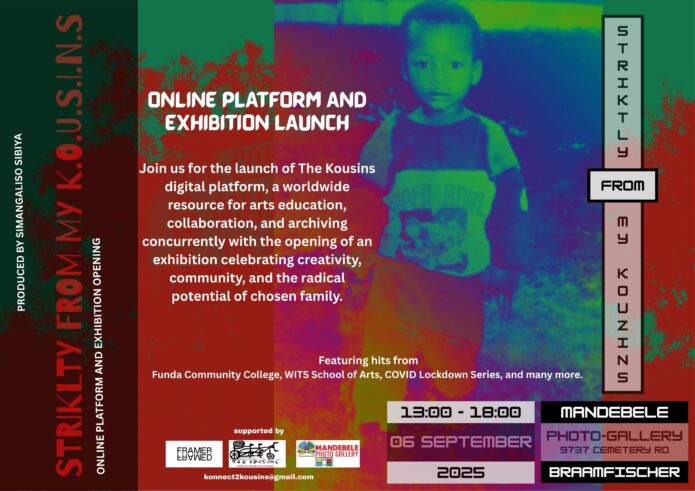
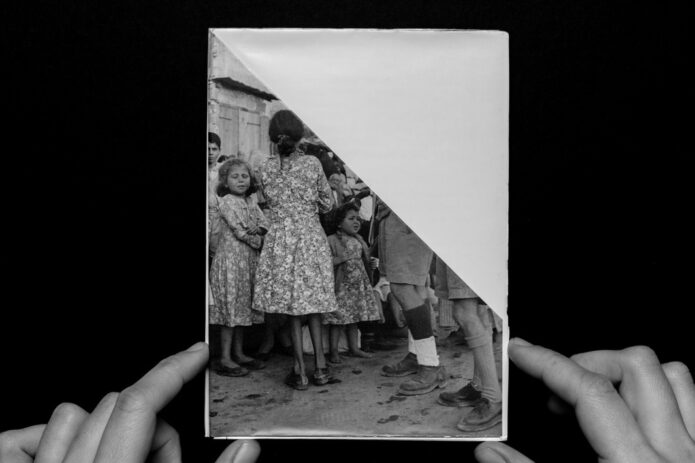
Report: Decolonial Futures with Ariella Aïsha Azoulay

Report: Decolonial Futures with Aditi Jaganathan

Report: Sara Blokland's lecture as part of Decolonial Futures
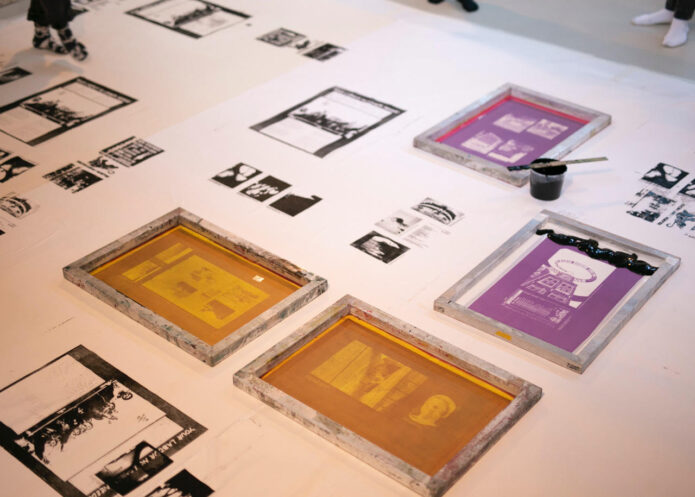
Decolonial Futures: Second Term
